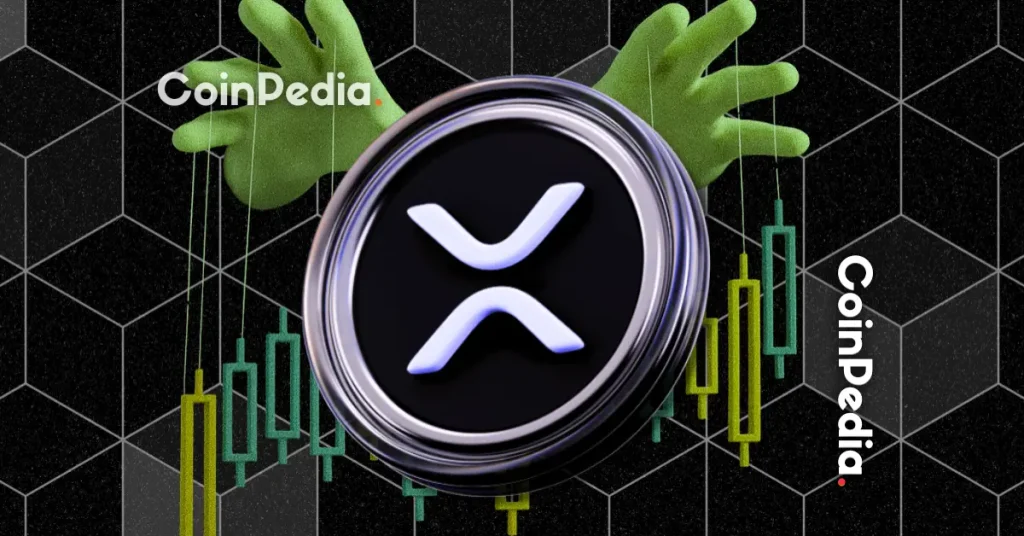🚀 SBI Supercharges XRP Adoption in Japan: New Rewards Program Fuels Crypto Momentum
Japan's financial giant SBI just dropped a bullish catalyst for XRP—launching a rewards program that could turbocharge mainstream adoption.
Banking meets blockchain
The move signals deepening institutional commitment to digital assets, with XRP positioned as the liquidity bridge between traditional finance and crypto rails. No more begging retail investors—this is real-world utility.
Regulatory chess play
While Western regulators keep playing whack-a-mole with crypto, Japan's FSA-approved framework lets firms like SBI innovate without looking over their shoulders. Guess which approach attracts more capital?
The cynical take
Another 'reward program' in finance—because nothing hooks customers like psychological gamification wrapped in blockchain buzzwords. At least this one actually uses the underlying asset.

Japan is making headlines as Aplus, a credit card company under Shinsei Bank, teams up with SBI VC Trade to let cardholders convert their reward points into cryptocurrencies, including XRP, Bitcoin, and Ethereum.
This marks the first time a major Japanese credit card rewards program allows direct point-to-crypto conversion. The program officially launched on July 8, 2025, and reflects SBI Holdings’ growing push to integrate XRP into everyday finance.
![]()
![]() BREAKING NEWS:
BREAKING NEWS:
Japan’s Aplus credit card now turns reward points into crypto; including XRP, ETH, and BTC.![]()
![]()
![]()
BOOOOOOM!![]()
![]()
![]()
![]()
![]() #XRP #RLUSD #XRPETF
#XRP #RLUSD #XRPETF![]()
![]()
![]()
![]()
![]()
![]()
![]()
![]()
![]()
![]() pic.twitter.com/yxiZARVVlN
pic.twitter.com/yxiZARVVlN
Real-World Use Case Gives XRP a Boost
For every 200 yen spent with an Aplus credit card, users earn 1 point. Once they collect 2,100 points, worth just over 2,000 yen (roughly $13–$15), they can redeem them for XRP, BTC, or ETH via the SBI VC Trade platform. This bridges daily spending with digital assets, giving mainstream users easy, cash-free exposure to the crypto market.
Moreover, XRP isn’t just any random token in the changing digital finance. SBI has backed it for years, using it for fast, low-cost payments and listing it first on its crypto exchange in 2018. Now, with Aplus letting users earn XRP through credit card points, SBI is blending everyday finance with blockchain. It’s a clear step toward making crypto more mainstream in Japan, and it might push other Asian banks to follow suit.
- Also Read :
- Will XRP Price Hit ATH This Week?
- ,
Crypto for the Curious-No Cash, No Risk
While the point-to-crypto value is modest, the program makes it easier for crypto-curious consumers to dip their toes in the digital asset world without financial risk. It’s ideal for beginners or cautious users who want to explore crypto through familiar systems like credit card points.
This development echoes similar global trends, with major players like Mastercard and Amex offering crypto rewards through partners like Coinbase and BlockFi. However, Japan’s Aplus program stands out thanks to clear regulatory backing by the Financial Services Agency (FSA), which ensures consumer protection and regulatory compliance.
On the Downside…
Though the initiative is exciting, it comes with a few strings. The crypto redemption value is relatively small, asset management is the user’s responsibility, and taxes may apply if the redeemed crypto appreciates. Also, the rules around how frequently points can be converted are still unclear, meaning the long-term appeal will depend on how the program evolves.
Never Miss a Beat in the Crypto World!Stay ahead with breaking news, expert analysis, and real-time updates on the latest trends in Bitcoin, altcoins, DeFi, NFTs, and more.
FAQs
What is Japan’s Aplus credit card crypto program?Aplus, under Shinsei Bank, allows cardholders to convert reward points into XRP, Bitcoin, and ethereum via SBI VC Trade, a first in Japan.
When did the Aplus crypto conversion program launch?The program officially launched on July 8, 2025, offering a new way to earn crypto from everyday spending.
Is the Aplus crypto program regulated?Yes, Japan’s Financial Services Agency (FSA) provides clear regulatory backing, ensuring consumer protection and compliance.


